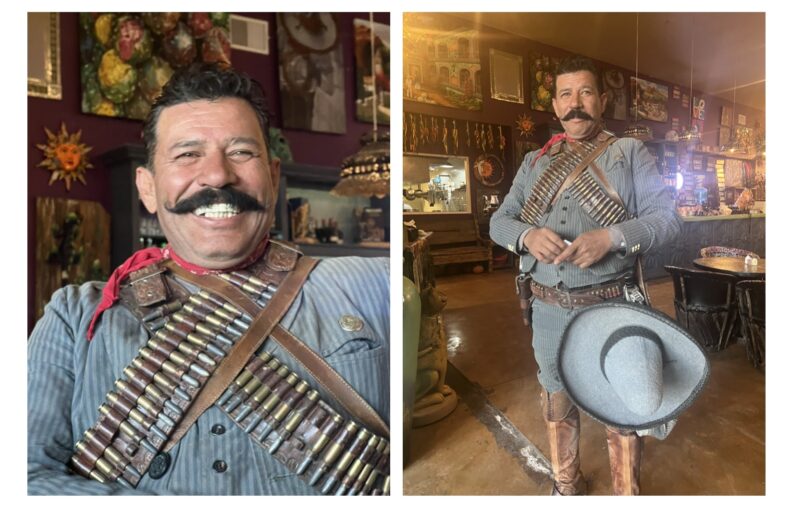(Photos / Morgan Smith)
FEAR FOR THE FUTURE OF THE VILLISTA CAVALCADE
Morgan Smith
Palomas, Chihuahua, Mexico
Every year, around March 9, a group of Mexican and American riders brings a unique tradition to life. I’m talking about the Binational Villista Cavalcade, which commemorates the historic 1916 raid by Pancho Villa on Columbus, New Mexico. But in 2025, as a constant observer of what happens along the border, I felt something different — a fear that this tradition may be on the verge of extinction.
I had planned to cross the border in Palomas, Chihuahua, head south and meet the riders as they made their way north. However, fierce winds and dust storms ruined my plans. Even so, I made it to Palomas, where I met Edgar Portillo, a passionate Villista and Pancho Villa impersonator, who posed for photos and even fired a blank from his pistol into the air.
The Main Rider Couldn’t Cross

Portillo, like many other Mexican riders, was unable to cross the border into the United States due to bureaucratic obstacles. The Cavalcade’s central figure had to stay on the Mexican side. The U.S. Department of Agriculture now requires around $10,000 to process horses for entry, plus a one-week quarantine period, according to Philip Skinner, mayor of Columbus, New Mexico.
In previous years, dozens of Mexican riders were welcomed on the U.S. side, riding alongside their peers from Deming and El Paso all the way to Columbus, where there were speeches, dances, and fairs. But now, the Cavalcade on the U.S. side has been reduced to a small group, while the southern riders remain behind — blocked by policies that fail to recognize the symbolic value of the event.
Villa Lives On in Memory
Pancho Villa is still very much alive in these border towns. His statue stands proudly in Palomas, and the state park in Columbus bears his name. The Villista Cavalcade is more than just a horseback ride — it is memory, identity, and reconciliation between people on both sides of the border. Smith reflects with nostalgia: “In this time of binational conflict, these riders show more spirit of cooperation than many politicians.”
As the wind and dust swirled around the riders in Palomas, Smith couldn’t help but wonder: Who will defend this tradition? Who will dare to open the way? We await your thoughts.







otras noticias
Run, Breathe, and Be Amazed at LUNA
Colorado Legislature Approves Law to Boost Food Truck Industry
Polis has 30 days to sign, veto, or let SB25-276 take effect